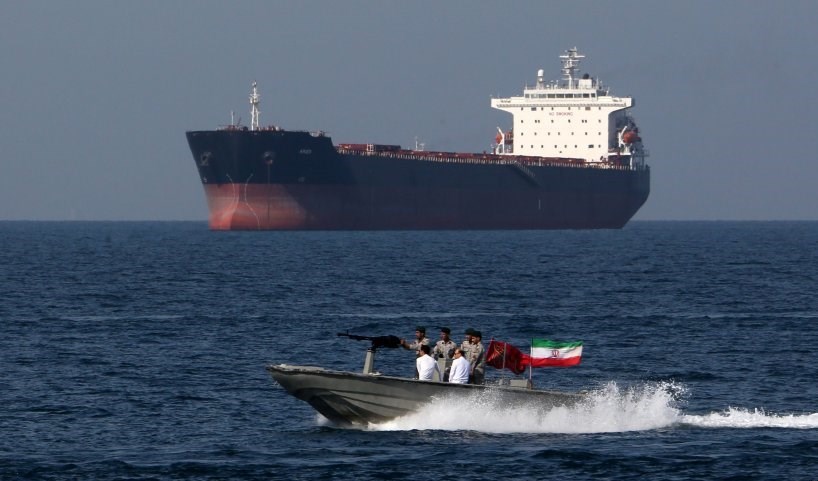Can Iran's Fuel Tanker to Lebanon Be Legally Intercepted?
A legal and political debate regarding Sayyed Hassan Nasrallah's move to import fuel from Iran: Does any country have the right to intercept the ship in international waters?
-

Egyptian constitutional expert: No one has the right to intercept the fuel tanker headed to Lebanon
The decision of the Secretary-General of Hezbollah Sayyed Hassan Nasrallah to import fuel from Iran to Lebanon, as shocking and controversial as it was to many, whether inside Lebanon or out, has also sparked legal and political discussions.
Although the decision came in the backdrop of the worsening fuel crisis in Lebanon, the inability of the Lebanese to secure their basic needs in oil products, waiting for long hours in queues to secure them, some criticized the decision, considering it "an attack on Lebanese sovereignty," with others wondering whether "Israel" or the United States may intercept these vessels. What does the law say on the matter?
"... No one has the right to prevent the arrival of the fuel tanker to Lebanon, and no one is permitted to stop it or force it to return," confirms Egyptian constitutional expert, Issam al-Islambouli.
Al-Islambouli says, "The decision to import a fuel tanker from Iran to Lebanon is a sovereign right of the Lebanese state and is related to its sovereignty." Regarding the possibility of an attack on the ship and how international law sees it, al-Islambouli says, "If it was attacked within the International Navigating Limits (INL), then it is within its rights to retaliate against the aggressor."
International law expert: No one has the right to intercept the ship in international waters
The ship's trajectory is unclear and unannounced, but it will certainly sail in international waters. As for the measures to be followed in this context and how the law views it, international law expert, Dr. Mahmoud Ramadan, says that the international waters, or what is called the high seas, are outside the framework of regional seas, meaning those adjacent to any country.
He clarified that the tanker coming from Iran is sailing through international waters and will not enter the maritime borders of any country, for all countries have a right to seawater that is limited to its regional waters, which is 14 km wide.
Ramadan explains, "When the Iranian tanker exits Iran's regional waters and enters deep international waters, which are permissible for all countries to use, no one has a right to intercept it."

 2 Min Read
2 Min Read








